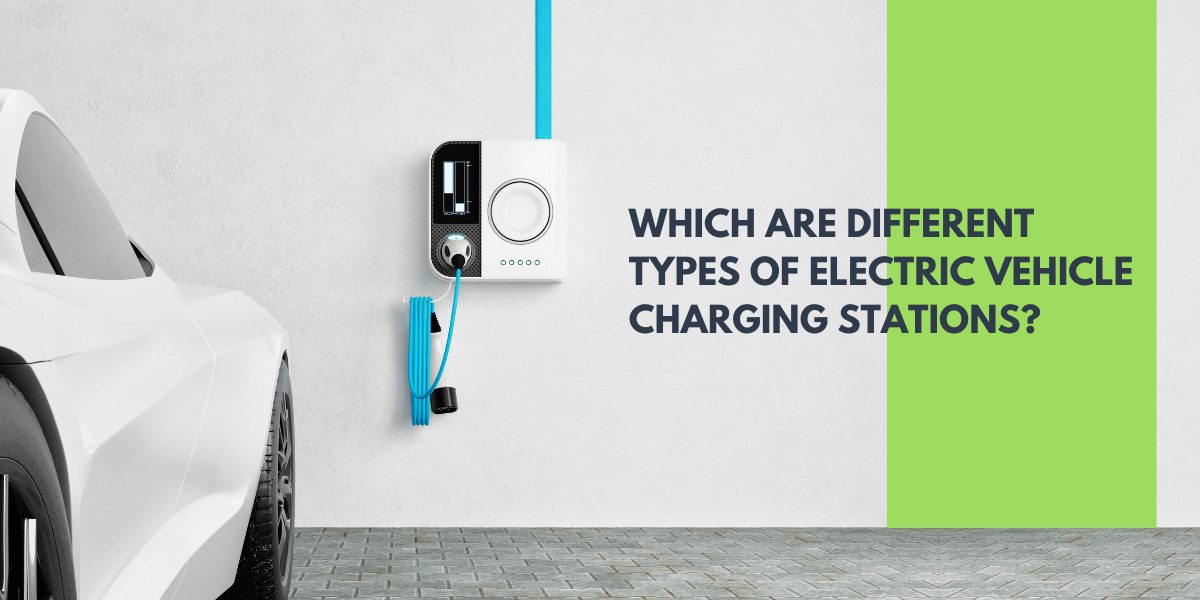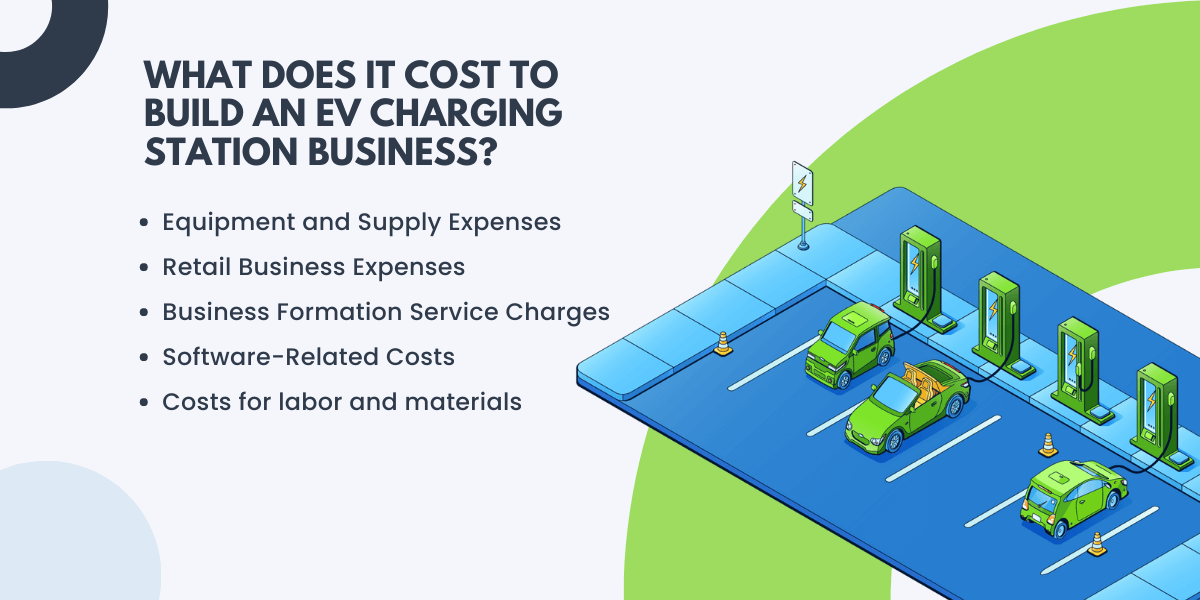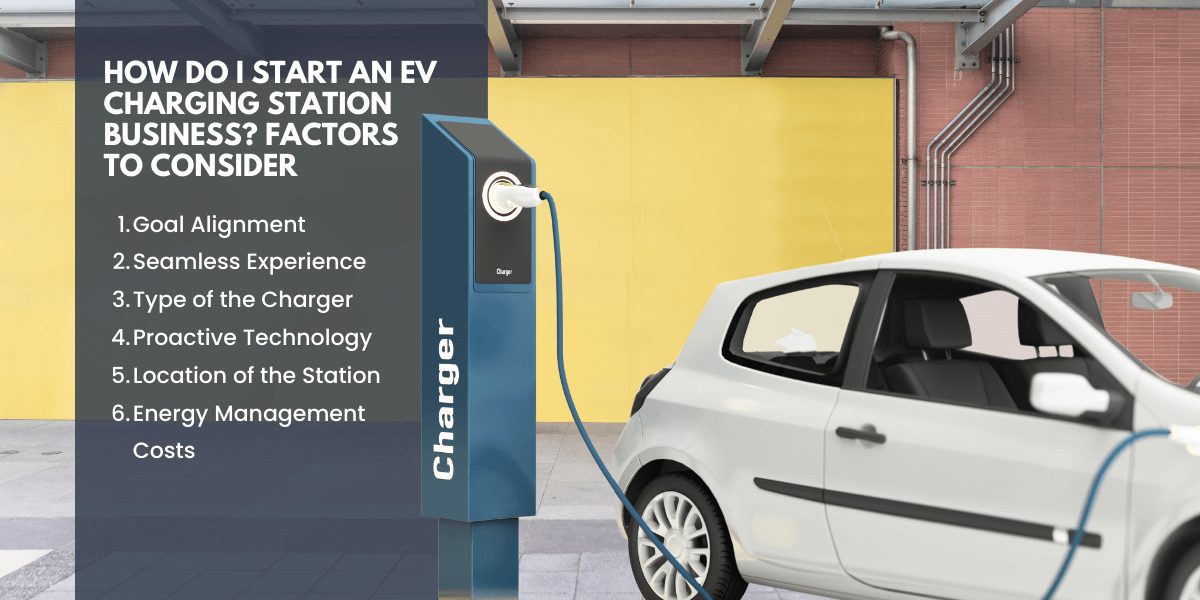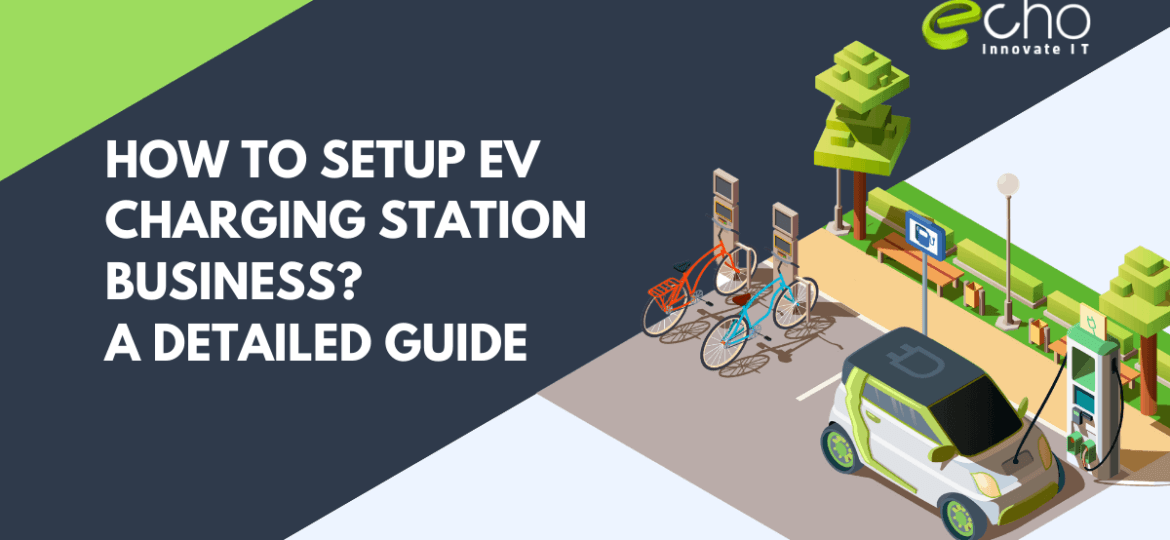As EVs become increasingly common, you may want to start EV charging station business. Many industries see benefits in EV public charging infrastructure, from developers to landlords to entrepreneurs. In addition, large lithium-ion batteries charge regularly to power these electric engines. Electric automobiles and scooters are plentiful, but electric vehicle charging station infrastructure is lacking. Not only this, you have options to set up EV charging stations that are profitable and sustainable.
Certainly, there are many benefits associated if you want to start EV charging station business, including increased profitability and recouping energy expenses.
Which Are Different Types Of Electric Vehicle Charging Stations?

There are three types of electric vehicle charging stations divided based on the levels for electric vehicles: Level 1, Level 2, and Level 3. Level 3 includes DC Fast Charging and Supercharging (Tesla). The more power provided to the car, the quicker it charges. Varying EVs charge at different speeds on each level because they accept different amounts of electricity from the EVSE, or charger.
Before charging an electric car, there’s a communication procedure. The automobile asks the charger how much power it can give and then requests the maximum amount it can take. The vehicle always chooses how much electricity it receives, so there’s no need to worry about overcharging your EV. The automobile limits the charger’s power.
Level 1:
In this, Level 1 utilizes a 120-volt outlet. The charging is done by connecting the charging equipment into a power socket. This is the slowest charging level. It adds 3 to 5 mpg. Level 1 charging works for PHEVs since their batteries are less than 25 kWh.
Level 2:
In light of Level 2 charging is most typically used for everyday EV charging. This charging infrastructure may be placed at home, the office, and public places like shopping malls and railway stations. Level 2 charging may add 12 to 80 miles per hour, depending on the charger’s wattage and the car’s maximum charge rate.
Most BEV owners pick Level 2 charging since it’s 10 times quicker than Level 1. Charging from a Level 2 source generally charges an almost empty battery overnight. Level 2 chargers provide 80 amps. Accordingly, this needs a 100-amp, 208-240V dedicated circuit and a hefty, expensive supply line. Markedly, most EV owners should use a 40-amp charger that delivers 9.6 kW.
Level 3:
Level 3 charging may provide 3 to 20 miles per minute to an EV’s range. Level 3 charging employs direct current, unlike Levels 1 and 2. (DC). Voltage is substantially greater than Level 1 & 2 charging, hence level 3 chargers aren’t installed in homes. Few homes have the high-voltage supply needed for level 3 charging.
DC Fast Chargers are also expensive. Even if your home has 400-volt energy, the charger will cost more than your EV. Superchargers are Tesla’s Level 3 chargers; while others are DC Fast Chargers.
What Does It Cost To Build An EV Charging Station Business?

Prior to establishing an EV charging station company, there are a number of variables that affect the cost to build an EV charging station business, including:
Equipment and Supply Expenses
Beginning an electric vehicle manufacturing firm may need the purchase of equipment, whether for manufacturing or packing the product, or for the back office.
Retail Business Expenses
If you want to have a brick-and-mortar site for your electric vehicle charging station, you must consider the cost of rent, since it may be the most costly aspect to start EV charging station business.
Most importantly, location has a significant impact on your electric vehicle charging station rent expenses. This cost will vary by region and local neighborhood.
Business Formation Service Charges
By and large, costs involved with structuring stations include establishing securing trademarks, copyrights, and patents, among others.
Software-Related Costs
Your electric vehicle manufacturing enterprise needs software by an on-demand app development company to operate properly. Additionally, it will help you save time and automate some EV charging station business processes, allowing you to concentrate on the most critical issues. Software and technology may help you expand your firm and save costly staff expenses.
Costs for labor and materials
The cost must be estimated for the electric wiring and cable that need digging, since this is considered fundamental pricing.
How Do I Start An EV Charging Station Business? Factors To Consider

The installation of commercial electric vehicle charging stations is becoming more crucial for companies across all sectors in order to satisfy the demands of their customers and renters. Companies who are forward-thinking enough to install EV charging stations at their offices receive several advantages and position themselves as early adopters of the future of mobility.
However, installing different types of electric vehicle charging stations on-site is a complex procedure, and the difficulty comes in determining which option is ideal for your business.
Here are a few factors to consider when installing commercial electric vehicle charging stations at your site to help you develop your charging plan.
Goal Alignment
First, determine your business’s requirements and desires. For one thing, to set up EV charging stations, in effect, you must grasp their target demographic’s habits and issues. A shopping center EV driver has distinct charging requirements than fleet drivers.
Knowing how many cars will charge at your site will decide the number and kind of EV chargers needed. Given that, companies should have enough chargers for every driver without overpaying. Before you start an EV charging station business, you must emphasize employee values due to a worldwide talent and skill scarcity. In essence, on-site EV chargers attract and keep green-minded personnel.
For this purpose to start an EV charging station business with a high ROI, they should use government incentives and create a payment scheme. EV site hosts may charge by the hour, session, or kWh (typically kilowatt-hour).
Seamless Experience
Hosts can increase driver satisfaction and loyalty with easy-to-use mobile applications and websites to set up EV charging stations. Easy enrollment, customizable account and driver administration, and remote authentication and charging help ensure a seamless EV charging trip. For this purpose, the role of an mobile app development company is crucial.
EV drivers may identify available chargers and make reservations using the EV charging station finder app development integrated navigation capabilities. Along with it, payment choices may be managed. In addition, real-time alerts keep them informed about charging start/end, reservations, and more.
Retail sites are essential host charging places, so businesses may want to provide coupons or discounts to keep EV owners engaged while they charge — and boost their bottom line.
Type of the Charger
Most importantly, EV charging station businesses must understand the many kinds of EV chargers to meet end-user demands. EV chargers may be linked to remote monitoring software and utilize AC or DC power.
Level 1, Level 2, and Level 3 chargers are common (DC Fast Charger, or DCFC). Higher charging levels power cars quicker. Defaulting to the quickest or most advanced charging level may not be ideal for your property. Several criteria will affect the sort of charging station required, such as: site power, charging speed and types of chargeable automobiles. Some properties may benefit from Level 1, Level 2, and DCFC. Your charging method should be convenient and accessible for EV drivers.
Proactive Technology
Automated self-healing, proactive, and remote problem resolution keep chargers working smoothly. Subsequently, complex defects need intuitive ticketing and support systems to monitor problems, investigate underlying causes, and remedy the problem.
Owing to its growing popularity, EVs have prompted developers to develop faster EV charging station business. So far, electric charging is newer. Wireless inductive charging doesn’t involve attaching or detaching any moving parts from the EV.
Location of the Station
After choosing the charging method that best matches your surroundings and company objectives, it is important for you to decide where to deploy charging stations. Consider the distance between the electrical panel and the charging station while deciding station position. Longer distances need more trenching and wiring, raising installation costs. Businesses should decrease this distance when considering appropriate location regions like building entrances, well-lit areas, Wi-Fi hotspots and high pedestrian zones.
A certified EV charging provider undertakes an in-depth site investigation for the purpose of identifying which location meets the requirements.
Energy Management Costs
Smart energy management reduces cost to build an EV charging station business. Therefore, EV drivers may choose the charging rate that assures the most cost-effective charging.
Innovative energy management provides load balancing, peak shaving, and renewable energy integration, and may be utilized to save infrastructure update expenditures and reduce peak charging time expenses. Particularly, intelligent EV charging enables continuous load balancing and energy optimization across the whole facility.
What Are The Financial Projections Of EV Charging Station Business?
Depending on the project and facilities, make financial estimates and revenue models for an electric car charging station. Provided that it takes 50 to 60 minutes to charge an electric car to 70% using a fast charger, you may generate money while customers wait. There are several ways to profit from charging stations to emphasize in detail:
- You may charge customers directly to maximize the profits
- A small food kiosk or coffee shop will boost profits and provide customers a spot to charge
- Increase foot traffic to increase profitability at your site
- Negotiate with other companies to subsidize the cost of the chargers in return for their branding on the EV charging stations
An EV charging station business is a network of franchise an EV charging stations that spans many regions or countries. Some of the most prominent charging networks in India include:
What Are The Ways To Attract More Customers For EV Charging Station Business?
Tata Power EV Charging Stations
It has 500 charger ports and aims to have 700 by December 2021. AC, Fast DC, and DC 001 chargers up to 50 KW have been implemented. The corporation will franchise an EV charging station at HPCL stores in cities and on highways. Tata Power EZ Charge smartphone app allows discovering EV Charging Stations, charging electric cars, and making online payments for Charging Sessions.
Fortum Charge and Drive
Fortum India pioneered EV charging. The firm has 6000+ smart charging stations in Nordic nations and 90,000 clients. The firm offers e-mobility solutions. Fortum Charge & Drive installed the first 50 kW fast-charging station at MG Motor, Gurugram. The business will franchise an EV charging station of 50 kW DC fast public charging stations at MG Supplier sites in Delhi-NCR, Hyderabad, Bangalore, Mumbai, and Ahmedabad.
Volttic Charging Solutions
Volttic provides residential and business EV charging solutions in Delhi-Noida. The firm operates 200+ AC and DC charging outlets in India and plans to install 12,000+ by 2025. Volttic is a cloud-based electric car charging service supplier that offers installation and maintenance. Delhi, Noida, Gurgaon, and Bengaluru are business locations.
Conclusion
It is essential to recognise that a number of variables will impact how you set up EV charging stations, and that the cost to set up an EV charging station business may vary. With proper preparation, though, you may be guaranteed of achieving the greatest outcomes.
Hire our professional developers if you are seeking an Mobile App Development Company for EV Charging Station Finder App Development.



